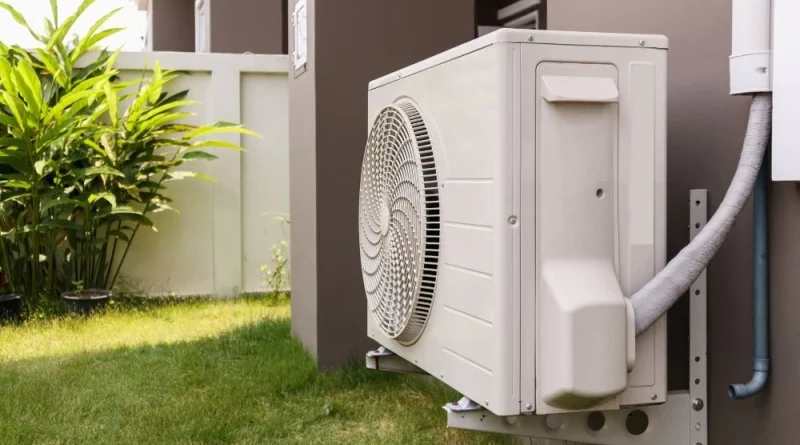Why Your Outdoor AC Unit Is Leaking Water & What To Do
As the temperature rises, the air conditioner will become an imperative equipment in our homes, imparting plenty of comfort from the scorching warmth. However, a sudden sight can dampen this comfort—water leaking from your outdoor AC unit. This trouble not only raises concerns about the functionality of your cooling device. But also about potential damage to your property. Understanding why your outdoor AC unit is leaking water and knowing how to address the issue can prevent costly repairs and maintain the efficiency of your air conditioning system. This blog will delve into the common causes of water leaks in outdoor AC units and provide practical steps to rectify and prevent such problems, ensuring you avoid unnecessary air conditioning repair Pearland expenses.
Understanding the Basics of AC Operation
Before exploring the motives in the back of the water leakage, it’s important to apprehend the easy operation of an AC machine. Your AC unit works by absorbing warm air from your home, cooling it, and then expelling it interior. This method involves the evaporation of refrigerant in the indoor unit, which absorbs heat and moisture from the air. The moisture condenses on the evaporator coils and is accrued in a drain pan. This amassed water is then channeled out of doors through the condensate drain line.
Common Causes of Water Leaks in Outdoor AC Units
- Clogged Condensate Drain Line: One of the most unusual reasons for water leaks is a clogged condensate drain line. Over time, dust, particles, and algae can build up inside the drain line, obstructing the drift of water. When this happens, the water backs up and may overflow from the drain pan, major to leaks.
- Improper Installation: An improperly installed AC unit can motivate several problems, in conjunction with water leakage. If the unit is not stage, the water won’t flow efficiently into the drain pan and may spill over the edges. Additionally, if the drain line isn’t successfully connected, it can purpose leaks.
- Damaged or Rusted Drain Pan: The drain pan is designed to gather the condensed water from the evaporator coils. Over time, the drain pan can emerge as broken or rusted, developing holes or cracks.
- Low Refrigerant Levels: Low refrigerant levels can cause the evaporator coils to freeze. When the ice melts, it can produce extra water that the drain pan might not deal with, resulting in leaks. This problem not best causes water leakage but moreover impacts the cooling efficiency of the AC unit.
- Dirty Air Filters: Dirty air filters restrict airflow, causing the evaporator coils to freeze. Similar to the low refrigerant trouble, while the ice on the coils melts, it may create immoderate water that the drain pan can’t accommodate, leading to leaks.
- High Humidity Levels: In regions with immoderate humidity, the air conditioner has to artwork more difficult to remove moisture from the air. This can result in more condensate production, which can also weigh down the drain pan and reason leaks.
- Blocked Air Vents: Blocked air vents can cause strain imbalances inside the AC device, fundamental to condensation problems. Ensuring that air vents are easy and unobstructed is critical for the right operation of your air conditioner.
Steps to Address Water Leaks from Your Outdoor AC Unit
- Inspect and Clear the Condensate Drain Line: Check the condensate drain line for any blockages. Use a wet/dry vacuum or a plumber’s snake to smooth any clogs. Regular renovation, together with pouring a combination of vinegar and water down the drain line, can help prevent future blockages.
- Ensure Proper Installation and Leveling: If you watched an incorrect setup, it’s fine to try to find advice from a professional technician. They can make sure that your AC unit is a diploma. And that the drain line is efficaciously linked and functioning.
- Replace or Repair the Drain Pan: Inspect the drain pan for any signs and signs and symptoms of harm or rust. If you discover any, replace or repair the drain pan to ensure it can accurately accumulate and channel the condensate water.
- Check Refrigerant Levels: Low refrigerant ranges need to be addressed through a certified HVAC technician. They can take a look at leaks, recharge the refrigerant, and make certain that the device operates efficaciously.
- Clean or Replace Air Filters: Regularly check and update air filters to maintain proper airflow. This prevents the evaporator coils from freezing and reduces the chance of water leaks.
- Monitor Humidity Levels: Use a dehumidifier to govern immoderate indoor humidity stages. This reduces the workload on your air conditioner and stops immoderate condensate production.
- Ensure Unblocked Air Vents: Regularly have a look at easy air vents to ensure they’re not blocked. This enables maintaining proper airflow and stops stress imbalances that may motivate condensation problems.
Preventive Maintenance Tips
- Regular Inspections: Schedule regular inspections with an expert HVAC technician. They can perceive and deal with functionality issues earlier than they improve into vital issues.
- Seasonal Maintenance: Perform seasonal safety for your AC unit. This includes cleansing the coils, checking the refrigerant levels, and examining the condensate drain line and drain pan.
- Monitor for Signs of Trouble: Pay interest to any signs of hassle, which incorporates unusual noises, decreased cooling performance, or water leaks. Addressing those problems without delay can prevent extra substantial troubles down the road.
When to Call a Professional
While some upkeep duties may be handled by way of house owners, certain problems require the understanding of a professional HVAC technician. Here are a few conditions in which you ought to name an expert:
- Persistent Water Leaks: If you’ve attempted the above steps and although word water leaks, it’s time to name an expert. They can conduct an intensive inspection and turn out to be privy to the underlying motive of the problem.
- Low Refrigerant Levels: Handling refrigerants requires specialized knowledge and devices. A licensed technician can thoroughly test and recharge the refrigerant tiers on your AC unit.
- Complex Repairs: Issues along with broken evaporator coils, electric troubles, or huge installation mistakes can be addressable with the useful resources of an expert to make certain stable and powerful maintenance.
Conclusion
Water leaking from your outdoor AC unit is a commonplace difficulty that could arise from various reasons, together with clogged condensate drain lines, wrong setup, broken drain pans, low refrigerant tiers, dirty air filters, excessive humidity stages, and blocked air vents. Understanding those reasons and knowing the manner to deal with them can assist hold the performance and sturdiness of your aircon tool. Regular preservation, timely inspections, and addressing problems immediately can save you pricey maintenance. And make sure your private home remains comfortable in the route of the current summer season months. When dubious, usually look for advice from professional air conditioning contractors to make sure your AC unit operates at its nicest.



